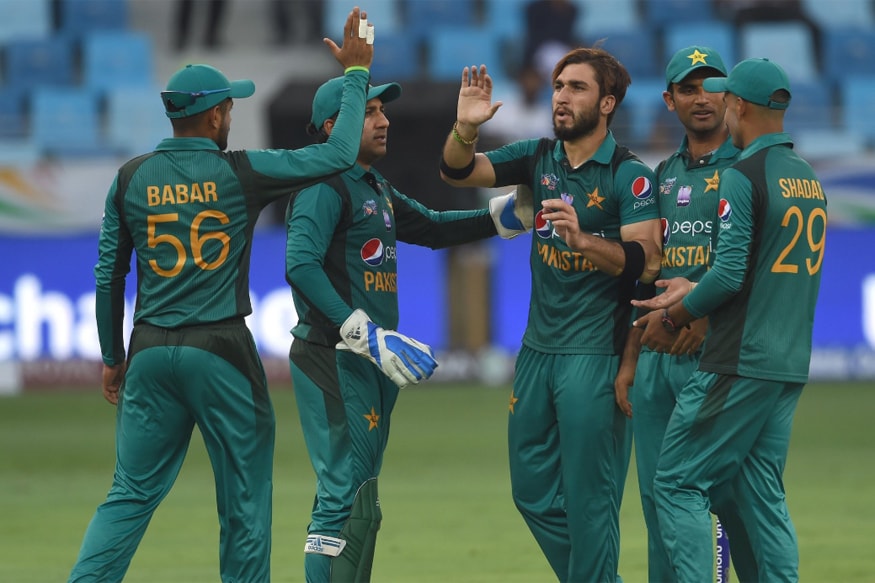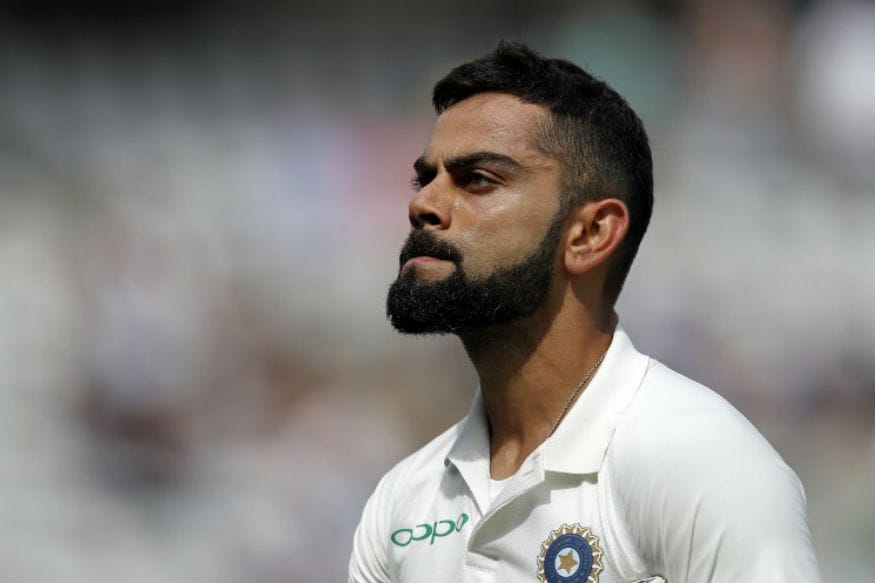
Virat Kohli. (AFP)
Loading...
Kohli’s nomination for the Rajiv Gandhi Khel Ratna Award (country’s highest honour in sport), made headlines everywhere even as the row between the Board of Control for Cricket in India (BCCI) and Star Sports, broadcasters of the Asia Cup, over he being rested for the ongoing tournament, has simmered over the past week.
Kohli would be only the third cricketer to get the Khel Ratna, others in this exalted league being Sachin Tendulkar and Mahendra Singh Dhoni. This defines his meteoric rise in stature. Brilliant form in all three formats over the past few years make his nomination debate-free.
The award awaits ratification from sports minister Rajavendra Singh Rathore some time this week or next. By all accounts, it should be a formality. In the unlikely event that it does not happen, there would be tumult!
The 'bust-up' between the BCCI and Star Sports (going by the exchange of heated emails between the two) is a more complex issue involving the authority/prerogative of the Board, interest of players’ health, and large sums of money that broadcasters risk for tournaments in which it is assumed that top players will play.
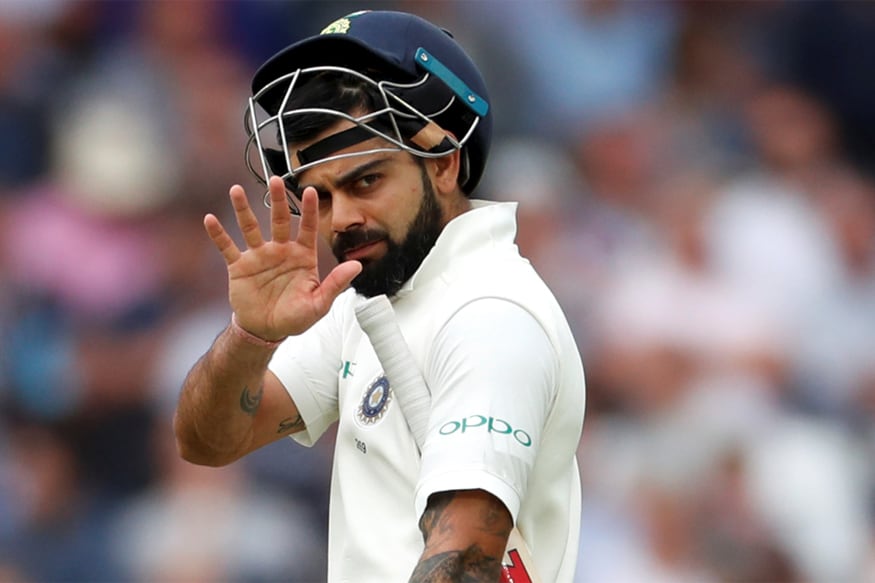 (Reuters)
(Reuters)Each of these stakeholders (true of any sport anywhere) has a justifiable argument in their favour, which vexes the matter further. On the face of it, there seems no foolproof resolution: except for all to agree that it needs to be addressed amicably.
While Kohli’s own role in these developments is oblique, he willy-nilly still occupies centre-stage. As the world’s stellar player, however, gratification through awards and the like is necessarily accompanied by an increased onus on him to do more, better and bigger.
In that sense, this enforced R&R period – even if for a fortnight – comes as a godsend as it allows Kohli to mull and assess his career as yet. Within the larger ambit of this exercise, he may find that his captaincy is beginning to acquire more significance.
As a batsman, he is not only at the peak of his prowess, by common consensus, has established himself as the best in the game. While form does – and will – fluctuate as he plays further, one can’t see Kohli’s status as among the very best in the history of the game being eroded.
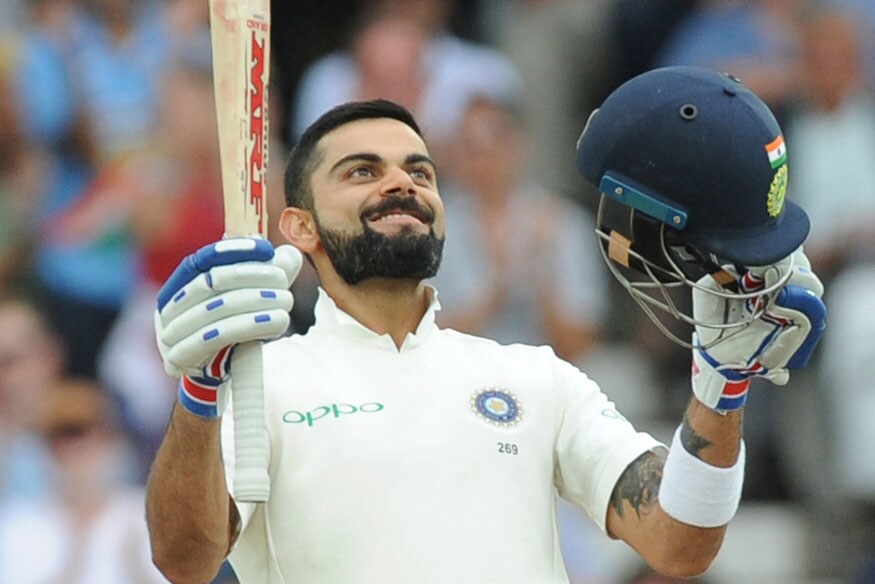 AFP
AFPHowever, it is the legacy he will leave back as captain that is now the more compelling issue for fans and critics. Dare say, this would be occupying Kohli’s mind too.
So far it’s been a mixed bag. While wins (across formats) easily exceed losses, and India have been the most consistent side across formats, he would surely have wanted more tangible rewards.
In limited overs tournaments, India have been extremely good, yet not good enough to win titles. In the 2016 World T20, India lost in the semi-final. In the Champions Trophy 2017 final, India lost in the final. The T20 tournament India won in Sri Lanka this year did not feature Kohli.
In Test matches, he has won almost everything in Asia. But in series’ played outside the sub-continent – considered the stiffer examination -- India have flattered to deceive, losing 1-2 in South Africa and 1-4 in England.
To be fair, it was because of Kohli’s own contribution with the bat that India even came close in these two series. But while memories of even sterling fightbacks will fade with time, the unedifying scoreline will stand forever.
Despite playing hard and competitive cricket, the results were adverse. While it is a truism that a captain is only as good as his team, these setbacks will rankle Kohli whose stated ambition is to be the best player in the game leading the best side.
So what’s the hurdle?
Excellence in sport at the highest level – individually and collectively – is defined by a combination of talent, temerity and tenacity. All these attributes are equally important though not necessarily in equal proportion.
Talent, of course, has to be assumed. Without enough ability and skill, it is impossible to rise to the international level. But talent alone can’t take a player far without fearlessness and grit. Some hugely gifted players have had short careers because of 'stage fright', as it were.
While the Indian team's much-touted 'intent' has been laudably strong, especially among bowlers, results have not been totally gratifying for loss of nerve or focus, particularly with batsmen. This comes through clearly from the closeness of results in South Africa and England and the several opportunities India squandered.
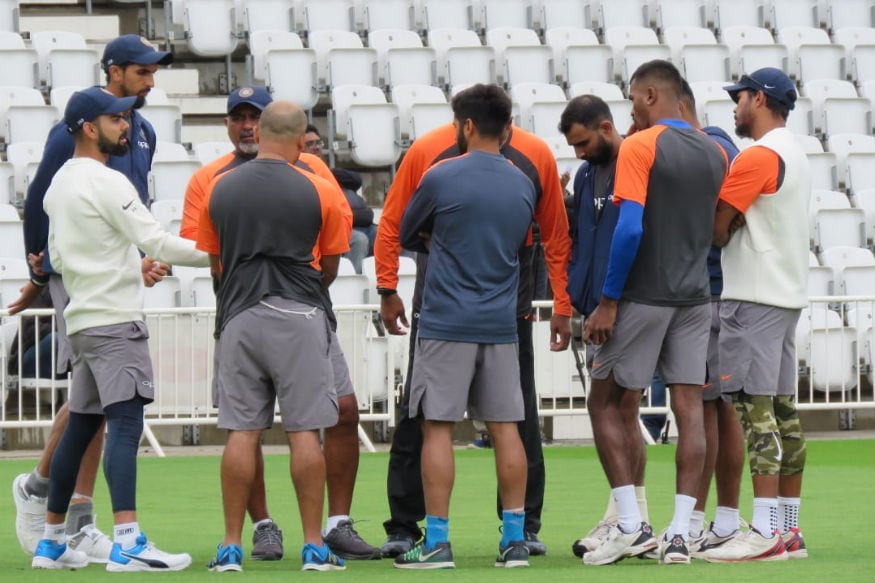 Twitter/ BCCI
Twitter/ BCCIWhether the value of temerity has perhaps been overstated by Kohli (and chief coach Ravi Shastri) at the expense of tenacity is the moot question. Being unreservedly aggressive has its uses, but without tenacity backing it, just temerity can easily, and dangerously, become false bravado or brash posturing.
Ironically, Kohli’s own performances have shown how to blend intrinsic talent with temerity and tenacity to become a world-beater. The more difficult the situation, the tougher the opponents and conditions, the better he has batted.
But there is no simple formula that can be passed on to others. It depends on a player’s personality, aspirations, conquest of fears and weaknesses, urge to learn all the time, building on expertise as he evolves.
Kohli’s batting career epitomizes what a tough mind, strong will, deep ambition can achieve. But the contours of his captaincy exploits are not as sharply defined. He is aggressive, energetic and the unambiguous "leader of the pack". But mixed results might tell him that something else, or more, needs to be done.
What that is would be almost impossible for anybody else – even the most accomplished cricketer/captain -- to advise precisely, save to say that it becomes the burden of the cricket captain to not only think for himself but sometimes for his teammates too.
Getting the best out of them, all to fit into his own vision of where he wants his team to go in a limited period of time, remains the captain’s abiding challenge. This requires another crucial attribute beginning with T -- tactical nous -- to go with talent, temerity and tenacity.
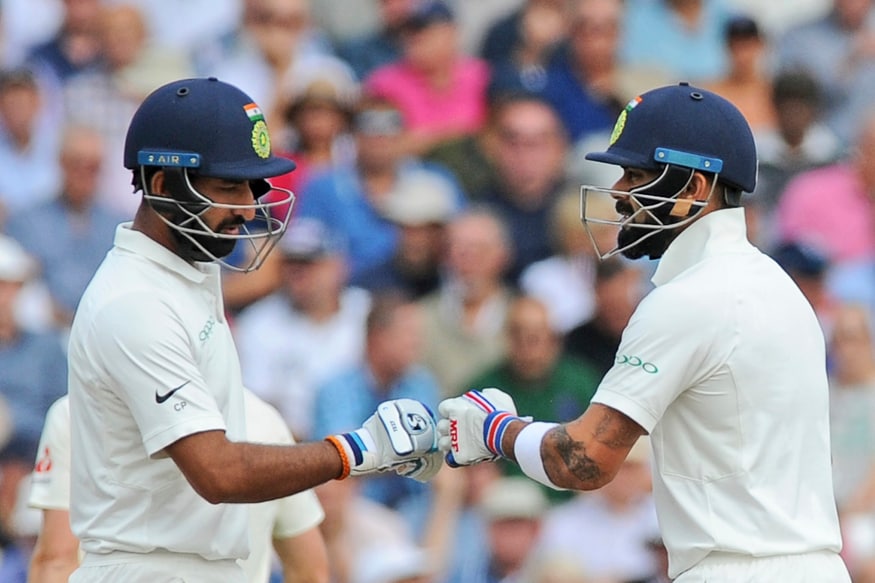 AFP
AFPFormer England captain Mike Brearley highlights this evocatively in the following extract from his masterly treatise, The Art of Captaincy.
"One part of the captain’s job is visible to all," writes Brearley. "He is the one who leads the rest out of the pavilion, and who, then, by nodding his head or pointing his arm, manipulates them on the field. His task is tactical, his decisions immediate and short term. On his performance in this sphere, he is judged.
"But there is also another side to the captain’s role, hidden from the general view like the dark side of the moon, where he assesses, plans and prepares. Here some of the work is directed to longer-term plans. It starts as soon as he is appointed, if not before."
Three years after he became captain, Kohli’s batting has touched the stars. On current form, quite simply, there isn’t another like him in the cricket universe. And he’s just about the halfway point in his career, which makes his achievements mind-boggling.
As captain, however, he stands at the crossroads, having done enough to suggest he is the best person to lead right now, yet not enough to fulfill the promise he held out of taking Indian cricket to hitherto unconquered heights.
The 18-month period between January of this year till mid-2019 was to be the turning point for Kohli and his team. Defeats against South Africa and England have been major setbacks and should compel a rethink on tactics and methods.
The tour to Australia later this year, and the World Cup six months later offer scope for redemption. But both time and matches are in short supply. For a legacy that he would like remembered by posterity, captain Kohli has his task cut out.
Anushka and Virat's marriagecaptain kohliengland vs india 2018From the press boxIndia vs Englandrajiv gandhi khel ratnaRavi Shastri
First Published: September 19, 2018, 5:09 PM IST


 GET APP
GET APP
 Ricky Ponting's Advice to Virat Kohli: Captaincy is 60 Percent off-the-field Homework
Ricky Ponting's Advice to Virat Kohli: Captaincy is 60 Percent off-the-field Homework Asia Cup: BCCI Rebuffs Star Sports After Broadcaster Questions Virat Kohli's Absence
Asia Cup: BCCI Rebuffs Star Sports After Broadcaster Questions Virat Kohli's Absence